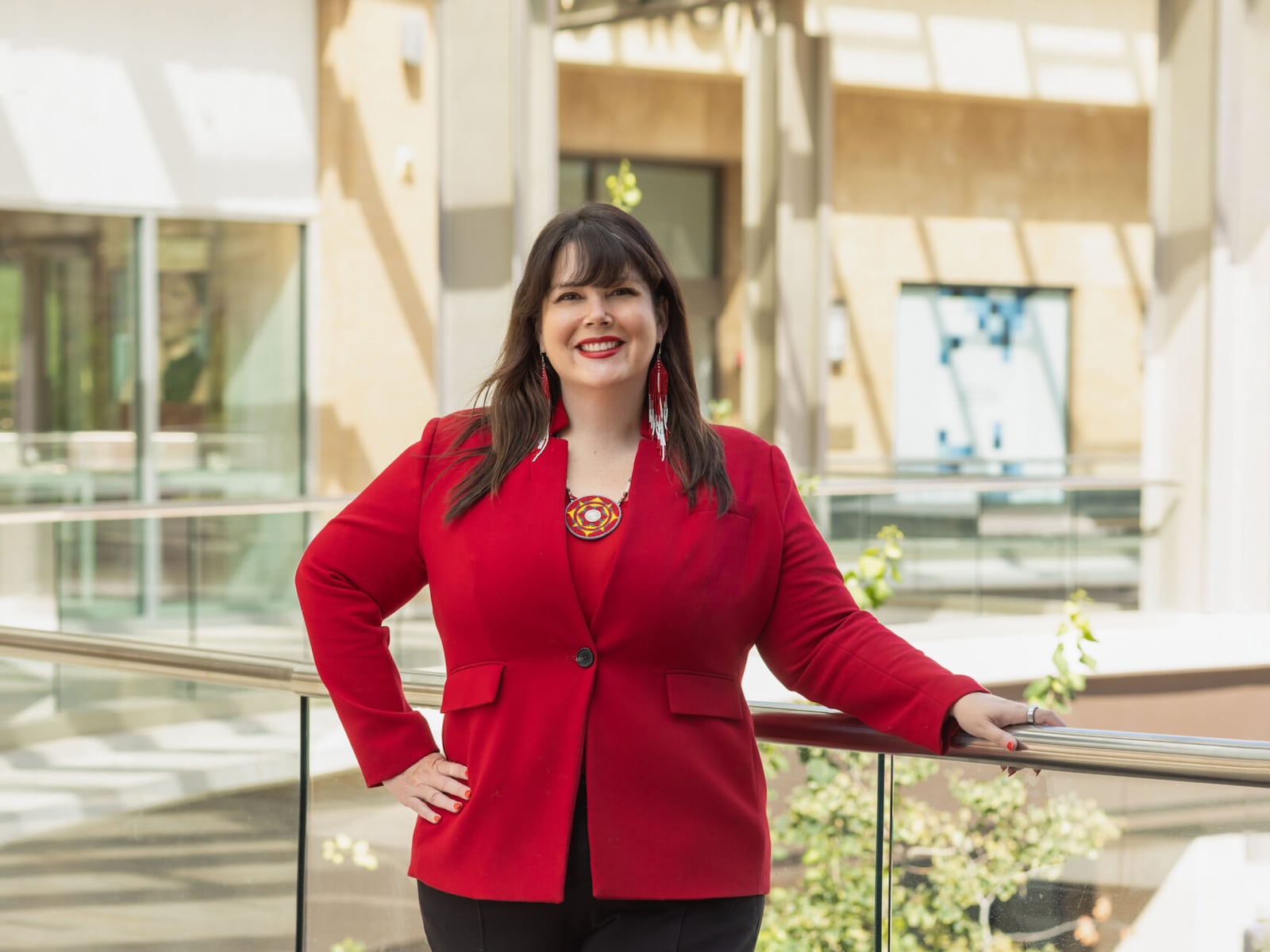Acting Dean | School for Cultural and Social Transformation
Elizabeth Kronk Warner was born and raised near her tribe’s reservation in the Upper Peninsula of Michigan. As a member of the Sault Ste. Marie Tribe of Chippewa Indians, she became deeply interested in issues impacting Native American lands.
Today, Warner is a highly-awarded, nationally recognized expert at the intersection of environmental and natural resources and Indian law. She co-authored three editions of her casebook, “Native American Natural Resources Law: Cases and Materials,” and edited and served as an author for “Climate Change and Indigenous Peoples: The Search for Legal Remedies.” She earned a bachelor’s degree in communication from Cornell University and a juris doctor degree from the University of Michigan Law School, which led to her impactful career in law and education. She credits the mentorship and love she received from her father — who convinced her that she was smart and could do anything she wanted — for getting her to Cornell.
Warner worked at Latham & Watkins in Washington, D.C., before transitioning to teaching at the Alexander Blewett III School of Law, Texas Tech University School of Law, and the University of Kansas School of Law, where she would later become the associate dean and director of the KU Tribal Law & Government Center. She also served as a trial judge and healing to wellness judge for the Prairie Band Potawatomi Nation. She became dean of the S.J. Quinney College of Law after serving as chief judge for the Sault Ste. Marie Tribe’s Court of Appeals.
“I love the creativity that comes from applying the law in different ways to help people,” Warner says. “Female perspectives are incredibly valuable as diverse perspectives have been shown to lead to better decision-making and representation for clients. Also, the legal profession has come a long way in the last several decades to become a more welcoming place for women. There is work left to be done, but we are definitely trending in the right direction.”
Throughout her career, Warner has served on many boards and committees, including the board of the Law School Admission Council, the Dean’s Advisory Council to the U.S. News and World Report, as the chair of the Association of American Law Schools (AALS) Membership Review Committee, and the Deans Steering Committee for the AALS.
“My success would not have been possible without the amazing mentors and colleagues I have worked with over the years,” Warner says. “I feel especially fortunate to work at the University of Utah because of the amazing people I get to work with.”
Looking ahead, Warner is excited about the future of higher education as new tools — like generative AI — allow faculty the opportunity to provide innovative instruction. She is also excited to see how new technologies and ways of thinking may help to close the existing access to justice gap. To Main Page

